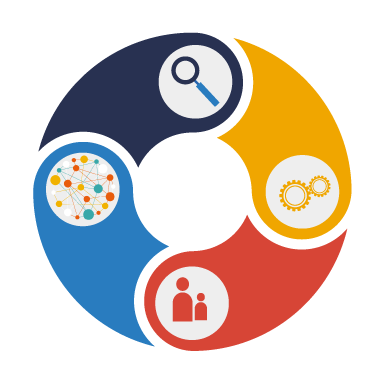Rareboost Seminar Announcement – Prof. Dr. Yasemin Alanay
On March 22nd at 11:00, Prof. Yasemin Alanay will give a seminar titled “Impact of Deep Phenotyping: High Diagnostic Yield in a Diverse Pediatric Population” at IBG.
Prof. Alanay has over 21 years of research experience studying rare syndromes and genetic diseases of the bone, known as the skeletal dysplasias. She is division head of Pediatric Genetics at Acibadem Mehmet Ali Aydinlar University School of Medicine where she was Dean between 2015-2021.
We welcome your participation in Prof. Alanay’s seminar on the diagnostic journey of rare diseases through clinical whole-genome sequencing and deep phenotyping.

Introducing Prof. Yasemin Alanay
Prof. Yasemin Alanay graduated from Hacettepe University School of Medicine in Ankara, Turkey in 1996 and completed her specialty in medicine at the same Institute in 2002. She completed her doctorate degree at Hacettepe University in 2009. Dr. Alanay served as a faculty member at Hacettepe University School of Medicine between 2005 and 2012. In 2013, she moved to Acibadem Mehmet Ali Aydinlar University School of Medicine where she is currently the division head of Pediatric Genetics.
Dr. Alanay both works in the clinic and leads a research team. She is an active member of the Skeletal Dysplasia community. She is PI in the Phase 3 Clinical trial for Achondroplasia treatment (Vosoritide) and leads Acıbadem Achondroplasia Multidisciplinary Team (MDT). She is currently responsible for establishing the first UDP (Undiagnosed Disease Program) in Istanbul. She is an active member of the Diagnostic Working Group at UDNI (Undiagnosed Disease Network International).
She participated in many multi-center studies especially in the field of genetic diseases of skeleton and craniofacial malformations. She was the primary investigator in identification of two new genes leading to recessive OI (FKBP10) and recessive facial clefting (ALX1). She has published more than 150 peer-reviewed articles and several book chapters. She is on the Editorial Board of American Journal of Medical Genetics and Clinical Dysmorphology. Her honors include “Scientific Encouragement Award, Hacettepe University” in 2010. She was on the Board of European Society of Human Genetics (2012-2017). Her current practice involves clinical genetics, dysmorphology with a special interest in clinical, molecular and social aspects of rare diseases.
Seminar abstract
Pediatric patients with undiagnosed conditions, particularly those Q7 suspected of having Mendelian genetic disorders, pose a significant challenge in healthcare. This study investigates the diagnostic yield of whole-genome sequencing (WGS) in a pediatric cohort with diverse phenotypes, particularly focusing on the role of clinical expertise in interpreting WGS results. A retrospective cohort study was conducted at Acibadem University’s Maslak Hospital in Istanbul, Turkey, involving pediatric patients (0–18 years) who underwent diagnostic WGS testing. Clinical assessments, family histories, and previous laboratory and imaging studies were analyzed. Variants were classified and interpreted in conjunction with clinical findings. The cohort comprised 172 pediatric patients, aged 0–5 years (62.8%). International patients (28.5%) were from 20 different countries. WGS was used as a first-tier approach in 61.6% of patients. The diagnostic yield of WGS reached 61.0%, enhanced by reclassification of variants of uncertain significance (VUS) through reverse phenotyping by an experienced clinical geneticist. Consanguinity was 18.6% of the overall cohort. Dual diagnoses were carried out for 8.5% of solved patients. Our study particularly advocates for the selection of WGS as a first-tier testing approach in infants and children with rare diseases, who were under 5 years of age, thereby potentially shortening the duration of the diagnostic odyssey. The results also emphasize the critical role of a single clinical geneticist’s expertise in deep phenotyping and reverse phenotyping, which contributed significantly to the high diagnostic yield.

